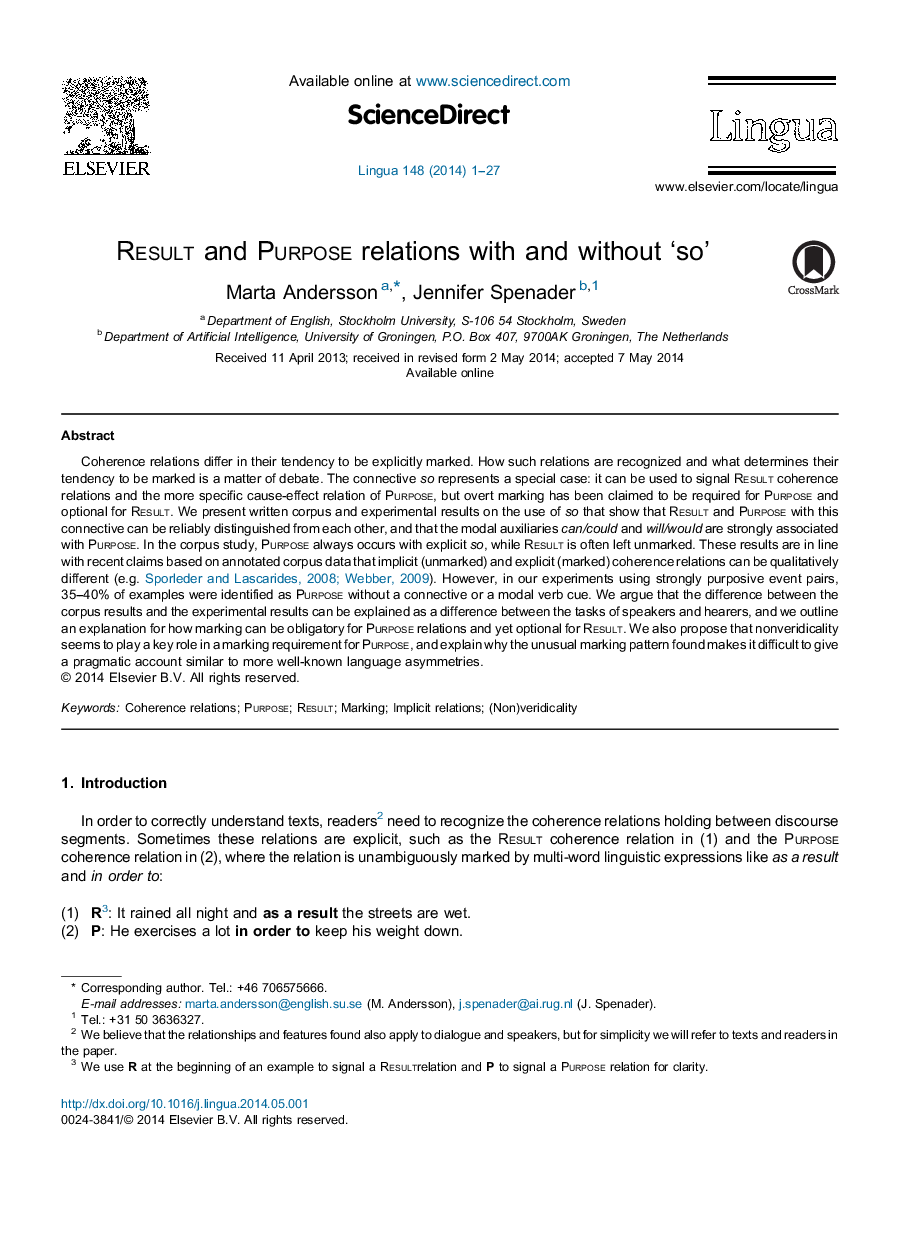| کد مقاله | کد نشریه | سال انتشار | مقاله انگلیسی | نسخه تمام متن |
|---|---|---|---|---|
| 7298523 | 1475060 | 2014 | 27 صفحه PDF | دانلود رایگان |
عنوان انگلیسی مقاله ISI
Result and Purpose relations with and without 'so'
ترجمه فارسی عنوان
نتیجه و هدف روابط با و بدون "تا"
دانلود مقاله + سفارش ترجمه
دانلود مقاله ISI انگلیسی
رایگان برای ایرانیان
موضوعات مرتبط
علوم انسانی و اجتماعی
علوم انسانی و هنر
زبان و زبان شناسی
چکیده انگلیسی
Coherence relations differ in their tendency to be explicitly marked. How such relations are recognized and what determines their tendency to be marked is a matter of debate. The connective so represents a special case: it can be used to signal Result coherence relations and the more specific cause-effect relation of Purpose, but overt marking has been claimed to be required for Purpose and optional for Result. We present written corpus and experimental results on the use of so that show that Result and Purpose with this connective can be reliably distinguished from each other, and that the modal auxiliaries can/could and will/would are strongly associated with Purpose. In the corpus study, Purpose always occurs with explicit so, while Result is often left unmarked. These results are in line with recent claims based on annotated corpus data that implicit (unmarked) and explicit (marked) coherence relations can be qualitatively different (e.g. Sporleder and Lascarides, 2008, Webber, 2009). However, in our experiments using strongly purposive event pairs, 35-40% of examples were identified as Purpose without a connective or a modal verb cue. We argue that the difference between the corpus results and the experimental results can be explained as a difference between the tasks of speakers and hearers, and we outline an explanation for how marking can be obligatory for Purpose relations and yet optional for Result. We also propose that nonveridicality seems to play a key role in a marking requirement for Purpose, and explain why the unusual marking pattern found makes it difficult to give a pragmatic account similar to more well-known language asymmetries.
ناشر
Database: Elsevier - ScienceDirect (ساینس دایرکت)
Journal: Lingua - Volume 148, September 2014, Pages 1-27
Journal: Lingua - Volume 148, September 2014, Pages 1-27
نویسندگان
Marta Andersson, Jennifer Spenader,
